It can be an ugly business, being proved right.
I was forcibly reminded of this about three weeks ago, a week in which two things happened of note in my journey through the world of SF publishing. (By which I mean science fiction, not San Francisco publishing. Which is a thing).
Firstly, it was 2000AD’s 42nd birthday. Congratulations to the Mighty One and all those who have labored under his direction to deliver comic book thrills since Feb 26th 1977.
I was seven when my mum bought me prog one. Although I’ve often cited 2000AD as an influence, it was only while I was partway through writing the first season of Chimera Company that I realized that I wasn’t just writing an adventure for fans of classic Star Wars with a heavy dose of Traveller RPG, but in writing it episodically, I was also channeling the thrills that had captivating me all those years ago when I followed the adventures of Judge Dredd as he travelled the Cursed Earth in his quest to deliver the vaccine to Mega City 2, or the youthful Johnny Alpha’s struggle to find a place for mutant-kind in Strontium Dog.
I will be writing more about Chimera Company and its influence soon, but for now, thanks for all the thrills, 2000AD. Here’s to another 42 years of wonder.
2000AD wasn’t the ugly matter, though.

I suggested in my last post that in the announcement of Nebula Award finalists we were seeing a small milestone in the evolution of short SF in the English language. I saw it as an interesting coming together of two sectors of science fiction that are usually too far out of phase to perceive the other’s existence.
Within hours of posting, the matter had blown up into an online spat, which cooled surprisingly quickly after about a week. Let it remain that way.
I’ve made a note at the end about the nature of the dispute for the curious. However, I’m not taking sides, nor do I welcome comments about the rights and wrongs of the matter, because what interests me here is the way it highlighted both the distinctions that separate groups of science fiction writers, but also the commonality that unites them, often to the surprise of the individuals involved.
I would say that when people first encountered the dispute, there is some accuracy in the idea that they learned of it in one of two distinct directions, depending on whether they were newer SFWA members and their friends, or more established ones and their supporters. (SFWA members nominate for the Nebula Awards). Having discovered the issue, people then made up their own minds regarding what they thought of the matter.
That didn’t stop some commentators on both ‘sides’ tried to frame the disagreement in terms of ‘indies’ versus ‘trad pub’. But as I’ve been suggesting for some years now, even if you wanted to align the dispute along those lines, the distinction breaks down when examined seriously. If there was ever a time when you could accurately categorize most published science fiction writers as either ‘self-published’ or ‘traditionally published’, then that time passed away some years ago.
For example, one of the most heated exchange of views was between a SFWA insider who is primarily self-published, and an outsider who is primarily published by one of the major publishers.
There were notable calls to avoid the indie vs trad divide because to do so is poisonous to SFWA. This is admirable and very true, but of more interest to me personally (and I suspect of greater long-term significance) is the belated realization at least a few that in 2019, it no longer makes sense to view English language SF publishing in terms of self-published authors and traditionally published authors.
I’ve written about this plenty, but let’s bring up an example. I used Yudhajaya Wijeratne as an example in my last post, so let’s turn to another finalist this time, Richard Fox.

Mr. Fox came to prominence a few years ago with the success of his self-published Ember War novels, and very highly regarded they are too, not least by myself.
Since then, he’s been published by other publishers with a variety of traditional and non-traditional business models and brought in other authors as co-writers. I don’t think he’s yet published independent work by other authors (i.e. books he didn’t co-write), but there are plenty of authors in Mr. Fox’s position who have. (Myself, for example. I publish my own work, I am published by a variety of publishers, and I publish other authors, paying some of them enough to themselves qualify as SFWA members.)
Now let’s add in Podium Publishing.
Podium is a highly successful audiobook publisher that is most noticeable for bringing Andy Weir’s The Martian to American national prominence almost a year before Random House launched the paperback version.
Actually, scratch that. Podium’s most significant work to date is producing some of my work as audiobooks, and the Sleeping Legion books, which I published but were written by JR Handley 😊
When I first had dealings with them, Podium only ever worked directly with authors; I believe this is largely still the case, although I messed things up for them a little with JR Handley. They didn’t go through agents and were most likely to approach authors directly. Like an increasing number of ‘NewPub’ publishers, I assume that Podium realized that Amazon sales ranking gave them hard data on how well a book was selling online before considering making a rights offer.
Podium also do the audio for much of Richard Fox’s work.
Fox’s Nebula finalist story, Going Dark, is set in his Ember War universe. Podium had already produced an unreleased audio version of the story to promote the audio editions of Fox’s novels. The day after Going Dark was announced as a finalist, the audio was available on popular site Audfans.com. You can listen to it for free here: https://audfans.com/book/going-dark-terran-strike-marines.
I’ve seen this audio advertised on several occasions in my Facebook feed.

I use this example to illustrate several of the points I’ve been making.
To begin with, how should we categorize Podium Publishing?
Are they a traditional publisher?
Are they an ‘indie’ publisher, whatever that might mean?
I think the most pertinent categorization is to label Podium as a successful publisher, and for that matter, Richard Fox as a successful author.

In my last post, I wrote about how short SF (at least in the Anglo-American markets) was experiencing a change of direction as new readers and new authors enter the field. A major factor in this are successful novelists (and their publishers) seeing online sales of short science fiction as a means of selling their novels. That’s always been true to a limited extent, but it is much more apparent now.
Take the Going Dark audio, once again. I’m certain its main purpose as far as Podium is concerned is a means to attract listeners to buy Richard Fox’s novels as audiobooks. Novelists writing short fiction to promote their novels is not new, but I believe the extent and intensity with which this is happening is.
A comment I saw many times in the recent dispute was essentially “who are these authors?”, referring to the ‘NewPub’ authors who made the list of Nebula Award finalists. That was inevitable given that the tendency of many readers to cloister themselves within discovery channels where they feel most comfortable, but which are limited in their outlook. However, I was pleasantly surprised to see that at least once, this question led to “and where can I go to discover successful ‘indie’ authors?”.
Like I said last time, the list of 2018 Nebula Award finalists is but a minor milestone along a journey that has a long way to run, but I did see a little mixing of the waters, at least in the sense that two major streams in the world of (largely) American science fiction publishing became slightly more aware of each other.
So, an interesting few weeks that has left me with an unexpected problem.
I’m going to vote in the Nebula Award for short stories and for novelettes. (For YA novels too, but not for the other categories as I don’t have time to read the finalists, unfortunately). To help me, I get copies of the finalists to read, which is great.
I’m going to vote for stories I think are the best. But on what criteria am I going to judge them?
It never occurred to me that this might be difficult.
Whenever I’ve assessed a short story before, it was to consider its commercial potential for publication in a specific project.
But I’m not publishing these stories, and I didn’t write them myself.
Stories that make me go wow and make my head spin for days will still trump everything else, but I found that wasn’t going to be enough. And so, after I read the first few candidates, I decided to step back and marshal my unstructured thoughts: what are my criteria for greatness?
I’ll tell you what I came up with, and what that tells us about SF publishing next time.

What was the fuss about?
Science fiction and fantasy enjoys a plethora of awards. I’ve mentioned the Nebula Awards run by the science fiction and fantasy writers club called SFWA. The Hugo, Dragon, and Arthur C Clarke are just a few more out of scores of awards, most of them tied to a convention or club. And that’s just for English language awards largely (but not entirely) focused on an Anglo-North American axis. It’s common for authors, publishers, and magazines to publish ‘eligibility lists’ as a reminder of stories they have published that are eligible for awards, and gentle encouragement to consider them for nominations. No doubt the motivation for eligibility posts includes the pride of summarizing the work published over the previous year.
Here’s a typical and unremarkable example:
http://www.beneath-ceaseless-skies.com/2019/01/24/2019-awards-eligible-stories-from-bcs/
Beneath Ceaseless Skies is a respected online science fiction and fantasy short story magazine. Here they list their award-eligible stories and highlight a few as most likely contenders.
A member of the 20BooksTo50k Facebook group (which I’ve mentioned in previous posts) organized a similar list of stories by members of the group. The enormous size of the group meant it obviously couldn’t be an award-eligible list (because that would run to thousands of titles). Instead, it was a list of titles that SFWA members had already listed in the SFWA recommended reading list at the SFWA website. At some point, it was felt by a number of people that the exercise had morphed from a passive listing of titles to active campaigning. The concern was that people were being encouraged to nominate titles for awards in order to ‘support the team’ rather than because the titles deserved nominations on merit alone.
Others disagreed.
I’m not interested in a debate regarding the rights and wrongs of the matter on this blog, nor of any of the Twitter storms that blow over the field of science fiction publishing from time to time. This blog’s about the state of science fiction publishing, from the perspective of a professional science fiction author, and the changes sweeping the industry. It is not on accusing or defending villains and victims. Comments concerning the perceived rights and wrong of the matter will be deleted.
For a more detailed account by one of the participants (and one that does have comments on the matter) you could start here and follow some of the connections, should you choose, to a range of points of view:




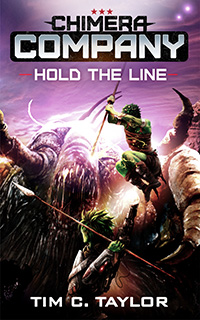
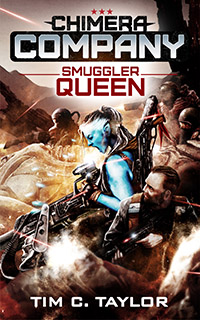

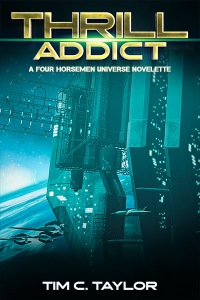
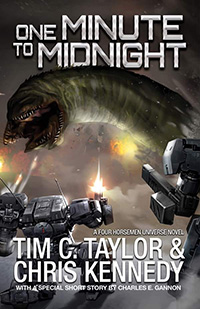
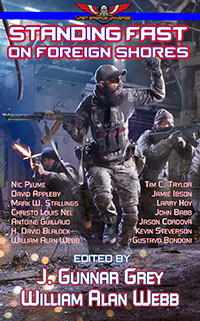



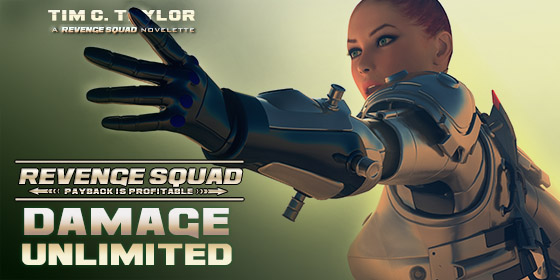

Pingback: Some Reactions to the 2018 Nebula Award Winners and a Post-mortem on the 20Booksto50K Issue | Cora Buhlert
Great piece Tim, and nicely balanced. I followed the link, that’s some mess, albeit there’s worse outside of the fiction world, which is no comfort. Can’t wait to see your criteria 0:
I agree that there are bigger problems in the world than disputes between writers.
I’m tempted to quote Sayre’s Law (“In any dispute the intensity of feeling is inversely proportional to the value of the issues at stake.”) although these fiction matters are not trivial in the lives of some of the participants. I had to look up the name of Sayre’s Law, and in so doing, came across Parkinson’s Law of Triviality (in this New Scientist article): “The amount of time an organisation spends discussing an issue is inversely proportional to its importance.”. I found this particularly disappointing because I had forgotten Parkinsons, even though I used to teach The Law of Triviality and Student syndrome in an earlier career. No doubt there’s already a cognitive law that describes this forgetfulness. If not, then I claim Taylor’s Law of Not Remembering Stuff: “Stuff from previous careers that used to excite you is forgotten in direct proportion to the usefulness in helping your children with their school homework. Unless you use the ideas in a book. Then you can remember everything (including the bits that never actually happened)”.
I like your law, even though suspect it works even without the necessity of children! Social psychology says that conflicts will be more polarised / emotive where they involve issues of cultural identity. Hadn’t occurred to me this may occur in the fiction world, but writer’s are so invested in their writing (and by extension its channel of expression), this makes a lot of sense, especially as the trigger here seems to be entangled with the cultural identity conflicts so prevalent in the US at the moment. This may not be incompatible with Sayre’s law in the sense that many culturally fought issues are symbolic; one can argue they’re often not important to what’s practically happening on the ground, so to speak; OTOH one could argue that their perceived import couldn’t be higher. I do recall from my corporate days of involvement in highly complex embedded computers for challenging applications, that ‘how many and what colour the indicator lights should be’ often occupied a vastly disproportionate amount of any contested issues during the design and build!
Good points, Andy. I’m not sure where I stand on some of them. On the one hand, many of these disputes seem so trivial to outsiders because they do not personally feel their sense of identity or values are being questioned, and from their perspective of the world, they truly are trivial. It’s easy from the outside to look disdainfully at these typhoons in teacups and wish the participants grew up and got some perspective. On the other hand, I’ve been sucked in myself, and I recall in my software career being highly agitated about issues analogous to your ‘what colour should the indicator light be’ – matters so obscure that I now find them difficult to explain, let alone justify why they mattered so much at the time.
I suppose it comes down to the human tendency to constantly seek to establish social identities around group norms (even within the same corporate business unit), and defend them to the hilt against a perceived threat when encountering groups with different norms, as seems to be happening with some writer communities. Perhaps Sayre’s Law works in so many situations precisely because when a dispute lacks any meaningful significance to outsiders, those involved who are unwilling to shrug and walk away from such a smaller issue, instead double down by investing their own sense of identity in the matter. If both sides take this approach, then it invariably escalates because when your identity is threatened, that is never a trivial matter.
Tim, I always find your views on our industry useful and interesting. But gosh, you cliffhangered us this time! I thought “What are Tim’s criteria?” and then the article stopped. I will have to tune in next time to find out. 🙂
Sometimes I wish we could be a bit more Spock about all this. As writers, we are often sadly (and secretly) jealous of writers with better sales, more fans, and more awards. Somehow we let these things creep in that divide us, instead of focusing on our shared love of science fiction and the positive things it can bring. Entertainment, education, and enlightenment in one fantastic package.
Heck, if scifi readers and writers war among themselves, I don’t have much hope for the rest of humanity making peace.
LOL. Well, Mark, I’m writing cliffhanger after cliffhanger in my short fiction serials at the moment, and I guess that leaks into real life. Although to be honest, I think I mainly did that to make myself write a follow up, as my blogging has been sporadic.
I know it’s tempting to despair of this kind of spat, and indeed that’s the main reason why I never bothered to join SFWA until a few months ago, and it’s put off authors I know who have been sitting on the sidelines considering joining for a while. To be fair, in this example, there were some cool heads and open minds – more so than I had expected – and a lid’s been put on it for now. From my perspective of being fascinated with how SF publishing works, I would be intrigued to see the reaction if a Nebula Award was won by one of the authors I’ve been categorizing as a new force within publishing that isn’t being talked about much (i.e. successful indie/ NewPub novelists who are turning their hands to short fiction — with commercial success — but haven’t followed a conventional short fiction career route through the usual magazines etc).
But that comes later. Now my involvement is simply to pick the best example in each category. Which I’ve almost completed. More on that after the break… 😉